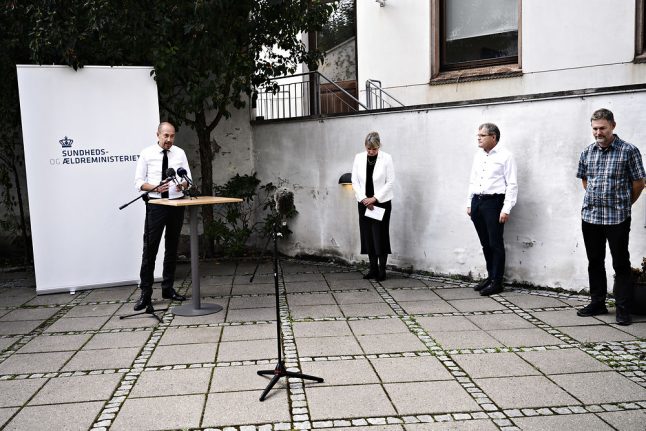A total of 173 new cases of coronavirus were registered in the latest daily update on Friday, following Thursday’s total of 179.
The numbers from the State Serum Institute appear a reversal of the improvement in Denmark's infections figures in late August.
The number of hospitalised people with Covid-19 in Denmark now stands at 18. Three people are in intensive care and all three are receiving ventilator treatment. One new death with coronavirus was registered on Friday, taking Denmark’s total lives lost to Covid-19 since the beginning of the pandemic to 627.
Previous days this week saw 111 (Wednesday), 99 (Tuesday) and 94 (Monday) cases registered. The figure was under 100 for seven consecutive days during last week.
The figure of 179 from Thursday is the highest daily tally since April 22nd.
New containment measures could be put in place if infection numbers in several towns do not improve by Monday, health authorities said at a press briefing on Friday.
“If infections keep increasing, it is not unrealistic for us to put stricter resources to use as soon as Monday,” Anne Lykke Petri, head of the Danish Patient Safety Authority, said according to DR’s report.
That was confirmed by health minister Magnus Heunicke.
“It is clear that if the infections continue to increase, we will have to use some of the tools that we know from (experience in) Aarhus have a significant effect in bringing down infections,” Heunicke said in reference to measures in Denmark’s second city, which saw a spike in cases in the first half of August.
READ ALSO:
- How did Denmark reverse its summer Covid-19 spike?
- Aarhus schools partially reopen as local Danish coronavirus restrictions eased
Those measures included partial closures of educational institutions and a requirement to wear face masks on public transport. The latter measure is now a national requirement at all times.
“Local shutdowns are one of the options at the top of our toolbox. We’ll look at the numbers again this weekend and if necessary, we will reach for some of these,” Heunicke said.
88 municipalities have registered new infections in the past week with 14 municipalities currently on health authorities' special observation list due to them having more than 20 infections per 100,000 inhabitants in the last 7 days, DR reports.
Copenhagen and Odense are both in the spotlight currently. The latter city, Denmark’s third-largest, has seen an outbreak at teacher training college UCL, where over a thousand students have now been sent home and switched to online classes.
Heunicke took the opportunity to stress good hygiene practice to reduce Covid-19 spread, including maintaining social distance, staying home if you feel ill and regularly washing hands or using disinfectant. There was also a call to refrain from private parties.
“We must remember to keep our distance. This is one of the best weapons (against the virus), but the second-best weapon is to reduce the total number of people you meet with,” said Dan Brun Petersen, acting head of department with the Danish Health Authority.



 Please whitelist us to continue reading.
Please whitelist us to continue reading.
Member comments